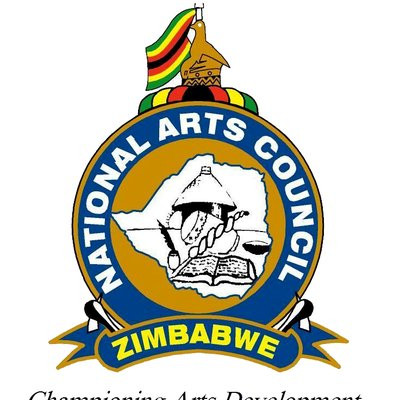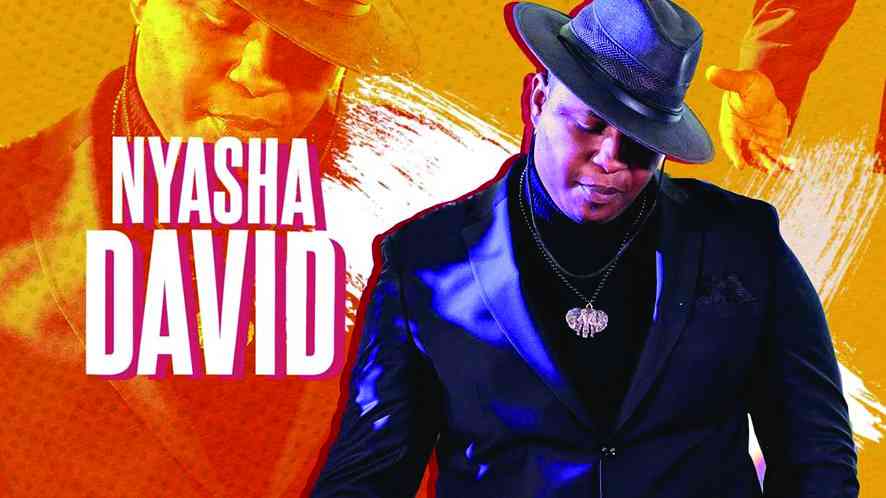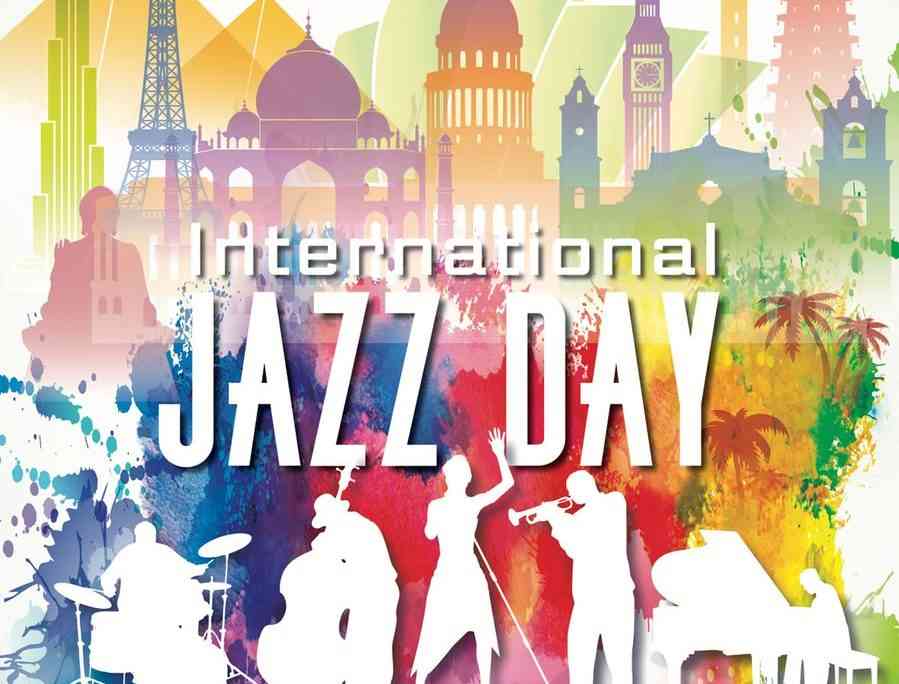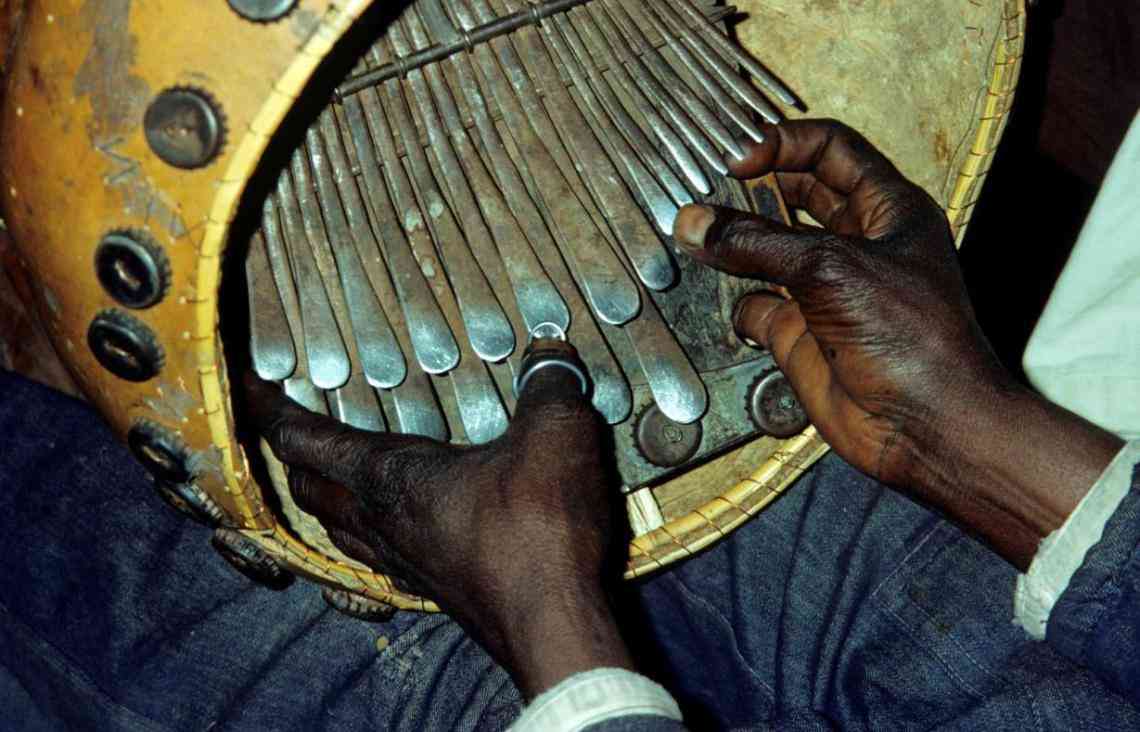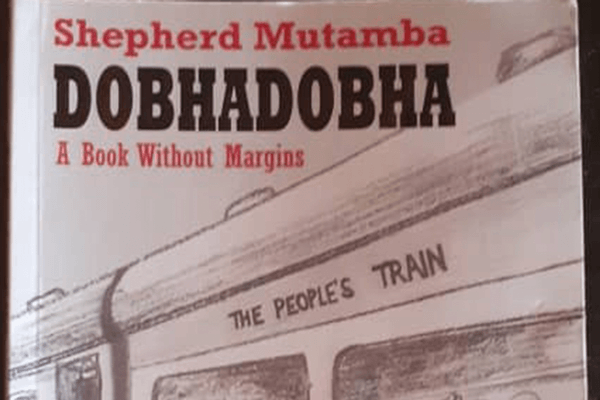
BETWEEN THE LINES Beniah Munengwa
Title: Dobhadobha: A Book Without Margins Author: Shepherd Mutamba ISBN: 978-1-77906-632-9 Publisher: Mhotsi Uruka (2019)
The name Shepherd Mutamba is not new to the writing and arts world. A journalist by profession, he once served as publicity manager for the late music superstar and national hero, Oliver “Tuku” Mtukudzi.
After their acrimonious fallout over unpaid salaries, among other issues, Mutamba penned two editions of a tell-all biography, Tuku Backstage, which lifted the veil over Tuku’s private life, while extensively documenting the musician’s life on stage.
Although Tuku refused to acknowledge the biography, he accused Mutamba of abusing the privilege of his proximity and access to the Mtukudzi family. But it has been helpful in allowing the public a glimpse into uncomfortable truths around the late national hero’s life.
Mutamba is back with another literary offering, this time on a purely creative note. His new picture poetry offers a livening feel and approach to literature and can as well claim a stake among the best reads of 2019.
His mode, however, is highly contested. Some are from the school of thought that, poetry on its own has the capacity to paint its own pictures. But after exploring his offer, it becomes clear that picture poetry is a welcome development, especially when the pictures help in the moulding a finer poetic pyramid.
It is also important to note that all the images present in the anthology are those taken by the poet himself. It only takes a man with a sharp eye to be able to capture images in the way he did.
- Chamisa under fire over US$120K donation
- Mavhunga puts DeMbare into Chibuku quarterfinals
- Pension funds bet on Cabora Bassa oilfields
- Councils defy govt fire tender directive
Keep Reading
Dobhadobha also adopts the journey motif, having a nomadic poetic and photographic voice that hops from here to there, capturing the little grains of salt that each and every phase of interest purported to offer. It is to that end that the name, Dobhadobha, The People’s Train comes from.
One such avenue is the reflection on the political misgivings of the characters of the late MDC leader Morgan Tsvangirai and his successor Nelson Chamisa. Above a picture in which their faces share the same photographic space, he writes, Nations rich in political figures, poorer in political leaders.
It cannot, therefore, be mistaken for a sentiment and illustration of a situation that is portrayed without an intent to begin a compound discussion.
Besides the image is the poem, Political Leader, Mutamba attempts to generate a template of what authentic political leadership entails.
Accompanying this poem is an image of a hen, rallying dozens of chicks forward, demonstrating the marks of true leadership.
But the anthology is not all politically inclined. Softness accompanied it also. A photograph of a child holding a camera and capturing an image accompany the poem, Memory.
It reads: “Love and hatred both reside in our memory/Holding both our good and our evil thoughts/As a photo holds both our beauty and shame.” Such writing calls for deep reflection on life.
Anatomy of Nelson Mandela Avenue presents a video of its own. From the illicit conduct of vagabonds in Africa Unity Square to the dozens of black-booted police officers, the presence of the Anglican Church and the Movement for Democratic Change headquarters and the Parliament of Zimbabwe building, Mutamba concludes saying: “Nelson Mandela Avenue, a street of contradictions.”
There’s one poem, however, that leaves one questioning the very state of revealing one’s unwanted side.
In the poem, She’s My Mother, Mutamba pleads with the sculptor who sculpts an artefact of a woman with the image of a whore.
He begs him not to create such an image for she remains the poet’s mother and hence deserves to have her dignity preserved.
This prompts the reader to question Mutamba’s appropriateness in opening Tuku’s weaknesses, especially in the presence of eyes that looked up to him too.
A reading of Mutamba’s work would not be complete without acknowledging the silent call by a woman who yearns for sexual gratification. Passion is not absent. Give Me Sex Not Love, is a poem that invites a man to bed in the absence of love.
The poems are not ordinary pieces crowding the literary landscape. Instead, they are double-edged, leading the reader into a quagmire of whether to turn left or right, but at the same time not openly.
The poem Mr. President reads: “Some say, you’re leading me to the Promised Land … Others, you’re Machiavelli leading me up the garden path.”
From them, one gets a unique interpretation of his own, however, mostly unpleasant.
And so does the poem, Open for Business, where what is referred to as business is not ordinary day hustle, but the case of those who sell their sexual potency in brothels.
In the ordinary sense, the title of the poem would suggest for President Emmerson Mnangagwa’s business mantra.
Political images of Joshua Nkomo, Thomas Mapfumo and Robert Mugabe are not spared. They add flavour to the anthology, always prompting one to dishonour the current state of the country, which has left the citizen in an “open prison”, with the culprit being the “presiding judge” as highlighted in the poem, Man on the Street.
Like in the case of Tuku Backstage, where Mutamba publishes the lifeless body of the late Sam Mtukudzi, the poem Shit is accompanied by an image of raw human effluent.
This reinforces Mutamba’s strength in standing for what he believes is appropriate to say, even when it goes against societal norms and values.
But taking into consideration that, whatever he mentions is true, one is left with just but one option, to find a way to swallow the truth that he always wanted to escape.
His images can stand as art on their own, a much more deeper component untouched by the words accompanying them.
Although it is actually a “true lie” that, we were once billionaires, an image of a 20 billion dollar note is enough to rouse a riot of thoughts in one’s head.
A traffic jam inspires the poem, Quagmire, which reads: “What is important only is the way out.” And from reading ground-breaking anthologies like this, what is only important is the ability to put pieces straight up together and finding a way to lead out of the abyss that only poetry can help vaporise.
Dobhadobha is Mutamba’s debut anthology and a reconnection with the sleeping poet, who began penning poems for Prize Africa in the 1980s. And in-between, he has been watching, experiencing and ending up even being “Unhappy with God”.



